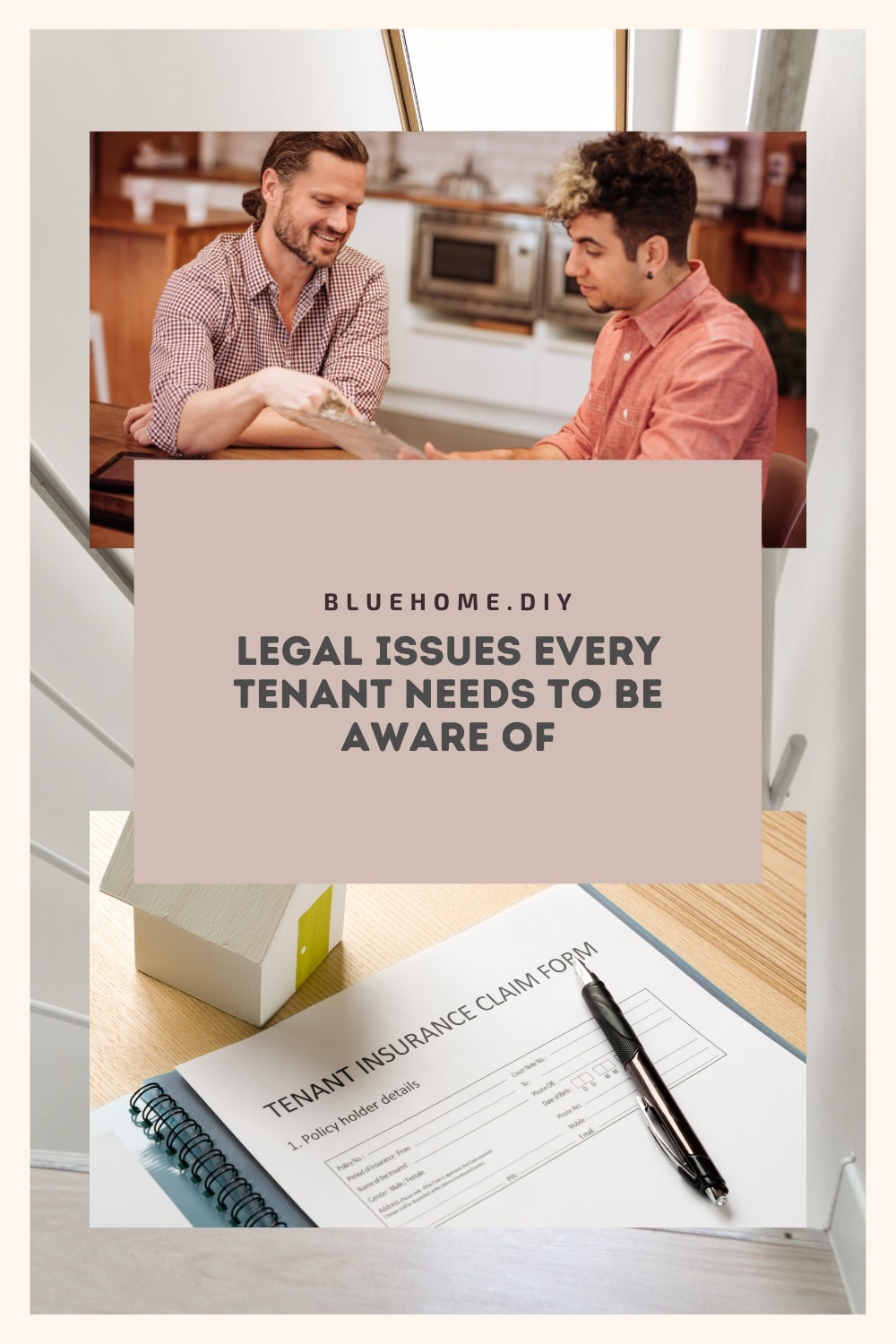As a tenant, you rely upon the terms in your lease agreement. A lease agreement is supposed to protect both the landlord’s and the tenant’s interests.
If you feel your landlord is not acting per your lease, you might have the right to pursue legal action.
To help you understand whether you can claim against your landlord, let’s discuss some of the leading legal issues every tenant needs to be aware of.
Photo by Maria Ziegler on Unsplash
Security Deposit
If you enter a lease agreement, your landlord will likely ask you to deposit security. The security deposit guarantees that you will not leave the property in disrepair at the end of your lease.
One of the best ways to keep your security deposit is to leave the property in better condition than you found it by keeping it clean and avoiding over-decoration by keeping to minimalist designs. If your landlord has holes in the walls and marks or scratches from pictures and decor, they will likely take your deposit.
If you leave the property in poor condition upon leaving, and your landlord needs to pay for repairs, they will keep your security deposit. If you have come to the end of your lease, and your landlord will not return your security deposit, you might have a right to claim in small claims court despite no damage or issue with the property.
Some landlords try to find minor issues with the property to keep your security deposit. You need to be wary of this regarding the end of your lease. The security deposit protects your landlord from property damage, and they shouldn’t hold onto your deposit without good reason.
In California, the security deposit can be up to 2 times the monthly rental value, so it is no small sum. This is a large sum compared to other states like New York, so pursuing the matter in small claims court is crucial if you live in California. Losing out on 2 months’ rent can be financially devastating for most people.
Lease Agreement
You must enter a lease agreement when renting a property from a landlord. However, the lease agreement is negotiable and should have favorable terms for you and your landlord.
You need to pay attention to all of the details in your lease agreement before signing, as once the lease agreement is signed, it will be difficult to combine any unfavorable terms.
So, to prevent legal issues down the line, it’s essential to enlist the services of a property lawyer before signing. They will be able to screen the lease for any potentially problematic clauses and negotiate the terms in your favor.
Property Maintenance
Regarding your lease agreement, there may be clauses regarding property maintenance. Knowing which areas you will be responsible for maintaining, such as corridors and communal amenities, is crucial if you live in a condo or multifamily property.
The lease will also contain details regarding your responsibility to keep the property clean, maintain the appliances, and perform regular maintenance duties like drain unclogging.
During your lease, you must clearly list your property maintenance responsibilities. Knowing which property issues fall under your domain will also prevent you from paying for repairs that your landlord is responsible for. If you have paid for property maintenance that falls outside of your property maintenance responsibilities, there is no guarantee that you will get your money back, but you can still make a claim.
Rental Payment Amount
In your lease agreement, there will be information regarding your landlord’s right to adjust or increase the rental payment amount.
If there is a guarantee of a fixed rental payment amount in your lease, and your landlord is trying to ask for more rent, you need to know your rights. You should speak to a lawyer and take the matter to small claims court. Your landlord should not be able to alter your rent payment responsibility if the lease protects you from the rental increase.
Speaking with a legal professional will help you understand the matter and your rights more clearly. It can protect you from eviction if your landlord is threatening eviction should you not pay the new specified monthly amount.
Notice For Eviction
You must know your rights if you have been handed a notice for eviction. In your lease agreement, a clause should determine how much information is required. It should also specify reasonable grounds for early termination. If your landlord is contravening these clauses, you may be able to protect yourself from eviction. Many eviction notices are taken to small claims court, and the landlord and tenant can present their evidence before a judge. The judge will then determine a ruling based on all available evidence and the rental agreement.
How Can You Protect Yourself As A Tenant?
As a tenant, you need to know your rights and seek the knowledge to help you protect yourself from unlawful action from your landlord. The best place to start is before you enter into the lease agreement; you need to know your rights and negotiate the best possible terms in your agreement. If you find legal contracts confusing, it is recommended that you enlist the services of a legal professional.
If you have issues following signing the lease, you must know how to protect yourself. In this instance, if your landlord is trying to increase your rent or evict you, you should seek advice on whether you can take the matter to small claims court.
Photo by Annika Wischnewsky on Unsplash
Summary
Knowing about some of the legal troubles that can arise during your tenancy can help you to argue favorable lease terms before entering into a lease agreement with a new landlord. Awareness of your rights and the duration of your lease can also help you to pursue legal action when you disagree with your landlord. Staying informed can prevent wasted time and money and help you avoid legal conflict.





Leave a Reply